Publications
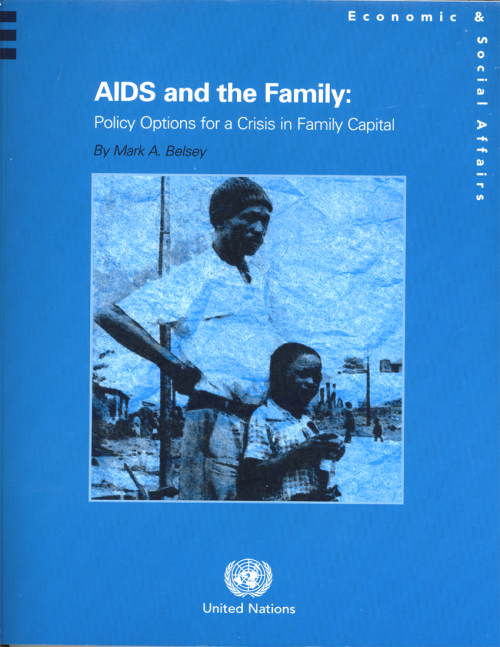
AIDS and the Family began five years ago, as a background document for the United Nations General Assembly discussions on the occasion of the Tenth Anniversary of the International Year of the Family. Intended as short overview in support of the activities of United Nations bodies and non-governmental organizations (NGOs), it was gradually expanded to include a review and analysis of the rapidly growing body of information, knowledge and international experience surrounding the HIV/AIDS epidemic.
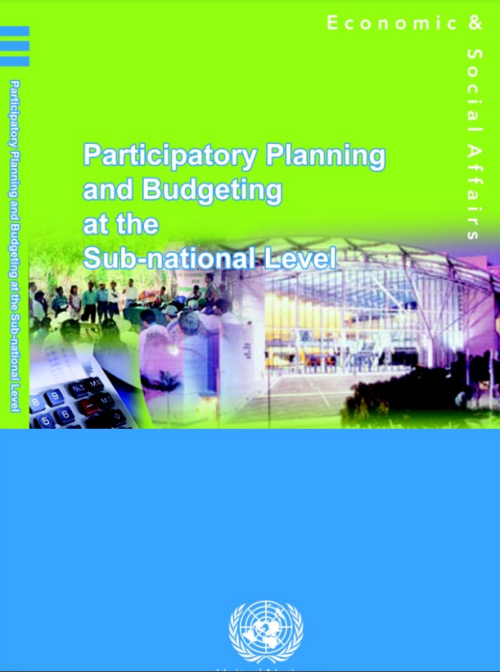
This publication serves as a reference and guide for local governments, non-governmental organizations, civil society and institutions, and will contribute to advancing the discussions in government-community engagements in fiscal processes. UNDESA remains committed to uphold the importance of good governance in achieving the goals of poverty reduction, social justice and equity through greater involvement, empowerment and engagement of citizens.
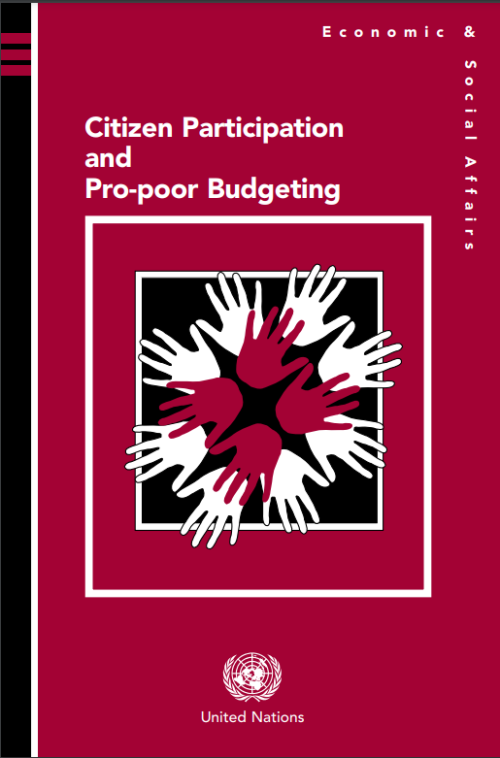
This publication is an output of Ad Hoc Expert Group Meeting on Civil Participation in Fiscal Policy, held in March 2004 in New York Headquarters. Specialists were invited to present papers and to discuss the institutions, processes and mechanisms of direct participation by citizens/citizen groups in the budgetary process and how this participation might contribute to the implementation of pro-poor policies.
Ad Hoc Expert Group Meetings are organized by DESA to provide information and substantive input to deliberations of policy-making organs and intergovernmental bodies of the United Nations system on subjects of interest to these bodies. In this case, the report of the Meeting…
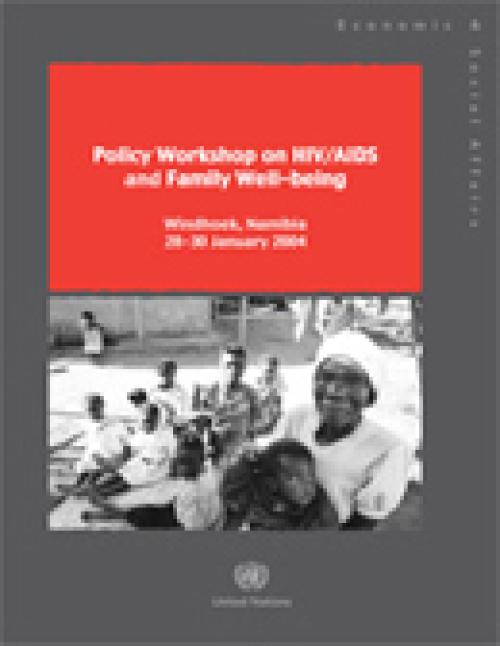
The Policy Workshop was organized by the United Nations Department of Economic and Social Affairs and hosted by the Government of Namibia, National Planning Commission Secretariat. It was held at Windhoek, Namibia. The purpose of the workshop was to bring together representatives of governments and non-governmental organizations as well as academic experts and practitioners from various countries in southern Africa to discuss the impact of HIV/AIDS on families in the region.
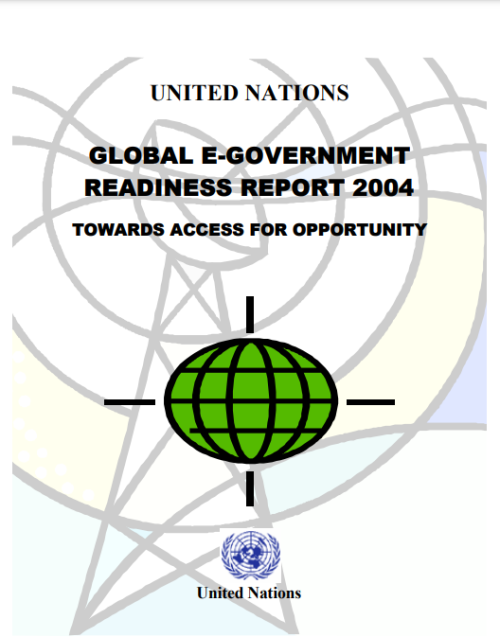
Economic and social empowerment today rests on the ability to access, gather, analyze and utilize information and knowledge to widen individual choices for political, economic, social, cultural and behavioral decisions. ICTs are the conduits which transmit information and knowledge. By integrating technology into development planning, more effective and speedy solutions can be found for economic growth and sustainable human development. However, the reality is that access to - and the distribution of - the tools for knowledge and wealth creation are highly unequal both among, and between, countries of the world. The disparities in access to ICT-related…
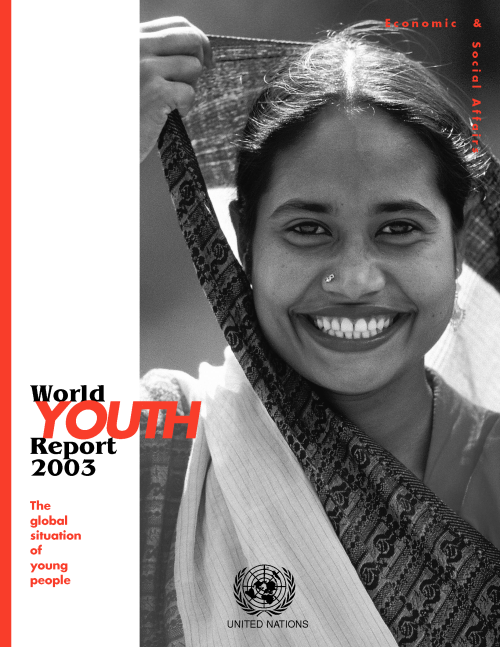
The World Youth Report 2003 provides an overview of the global situation of young people. The first 10 chapters focus on the priority areas identified by the World Programme of Action for Youth (WPAY), adopted by the General Assembly in 1995. The remaining five chapters address some of the newer issues that were later identified as additional priorities for youth and were adopted by the United Nations Economic and Social Council (ECOSOC) in 2003.
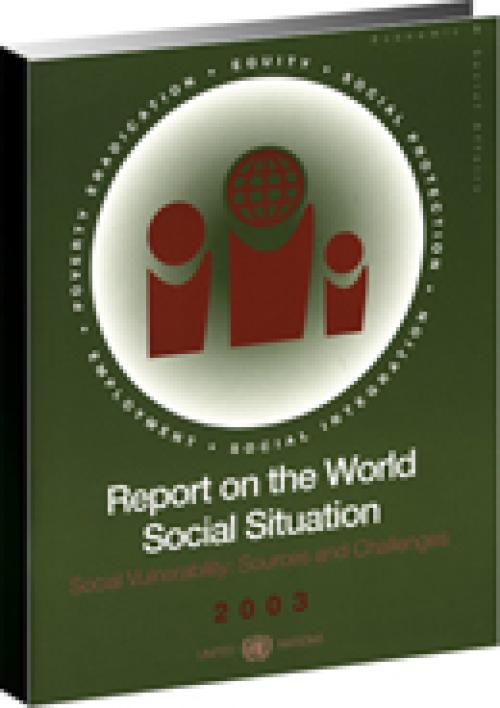
The 2003 Report on the World Social Situation is the sixteenth in a series of reports on the subject dating back to 1952. It is available as a United Nations sales publication. Its main theme is ” Social vulnerability”. The present Report is the first produced on a biennial basis. This is not, however, the only change to the Report. Its content should be seen as part of the new initiatives put forward by the Secretary-General in his quest to renew the capacity of the Organization to provide a space for genuine dialogue and to serve as a catalyst for effective action.
There are two new main features in the 2003 RWSS compared to previous reports.…
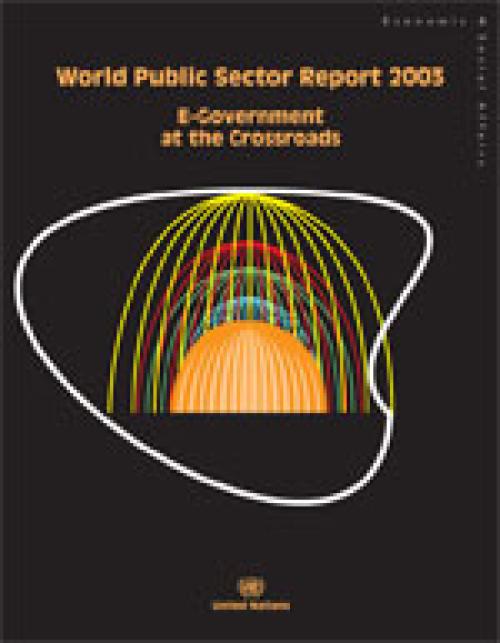
E-government at the Crossraods
The World Public Sector Report 2003 presents a view of e-government as a tool for creating public value. It puts e-government development in the context of the United Nations Millennium Declaration, the Report claims that meaningful e-government applications are those that support the environment conducive to human development and suggests that such an environment can be created by a conscious effort "world making". It discusses the special cases of e-participation and privacy, all as part of the main message the ICT by itself will not result in a different, better government, or higher quality of life, but that…
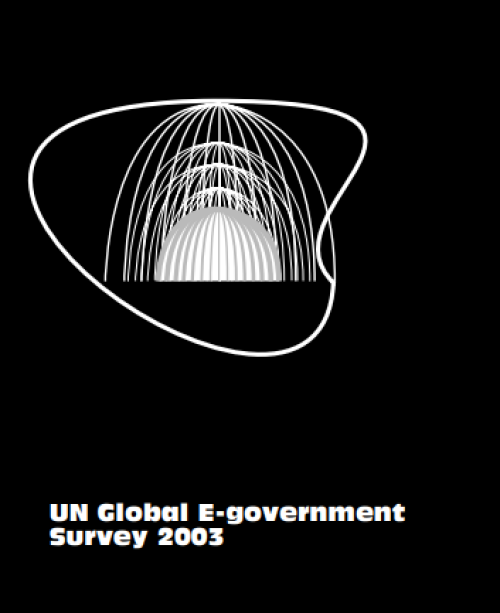
Governments are increasingly becoming aware of the importance of employing e government and e governance in improving public service delivery to people. The potential of e-government, as a tool for development, hinges upon three pre- requisites - a minimum threshold level of technological infrastructure, human capital, and e-connectivity for all. E-government Development strategies and programmes will be able to be effective and 'include all' people only if, at the very minimum, all have functional literacy and education, which includes knowledge of computer and Internet use; all are connected to a computer; and all have access to the Internet. The primary…
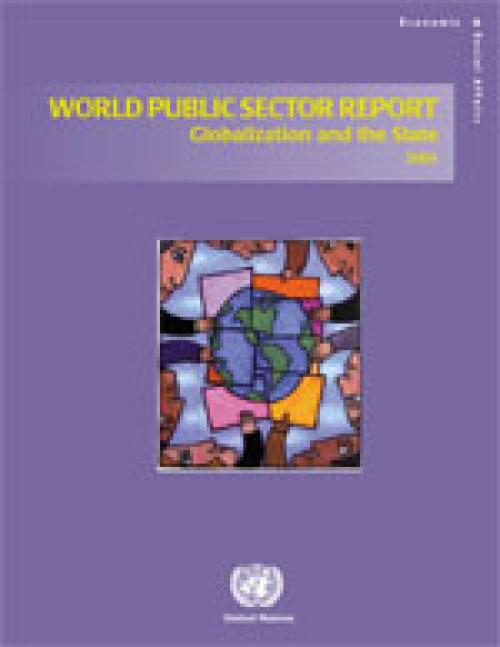
Globalization and the State 2001
Globalization, although not a new phenomenon, is unquestionably of paramount significance for all countries, developed or developing, rich or poor, large or small. What is globalization? How is globalization affecting the role and functions of the nation- State? Is globalization "good" or "bad"? Is there a universal understanding of its potential or its costs? Can all societies benefit from globalization? Are all States adequately prepared to enable their people to seize the opportunities of globalization while minimizing its negative effects? How should public administration systems be redesigned in view of the changes occurring at the global…
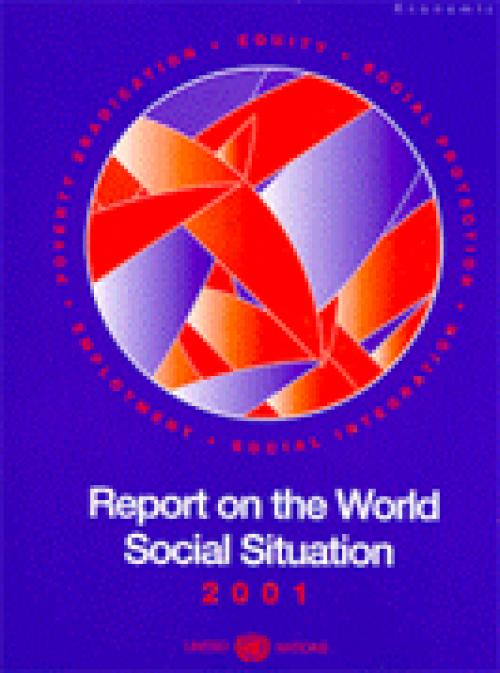
he 2001 Report on the World Social Situation is the fifteenth in a series of reports on the subject dating from 1952. The content, structure and shape of the reports have undergone change, but the main purpose of the series continues to be to provide both participants in intergovernmental debates in the United Nations and a wider audience with a handy, single-volume, succinct summary of global developments seen from a social perspective.
The scope of the present Report is very wide, covering broadly the range of issues identified in the Declaration and Programme of Action of the World Summit for Social Development, adopted in 1995 at Copenhagen at an event of major significance,…
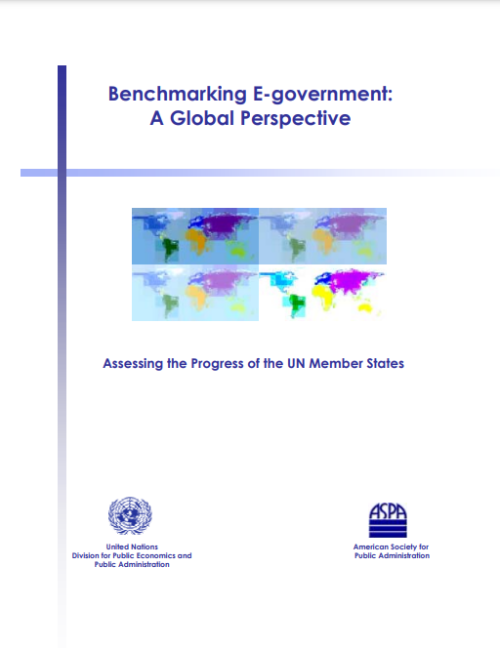
Since the mid -1990s governments around the world have been executing major initiatives in order to tap the vast potential of the internet for the distinct purpose of improving and perfecting the governing process. Like the personal computer, the internet has become an indispensable tool in the day-to-day administration of government. In an effort to gain an appreciation of the global e-government landscape in 2001, the American Society for Public Administration (ASPA) and the United Nations Division for Public Economics and Public Administration (UNDPEPA) undertook a research study analyzing the approach, progress and commitment on the part of the 190 UN Member…
 Welcome to the United Nations
Welcome to the United Nations